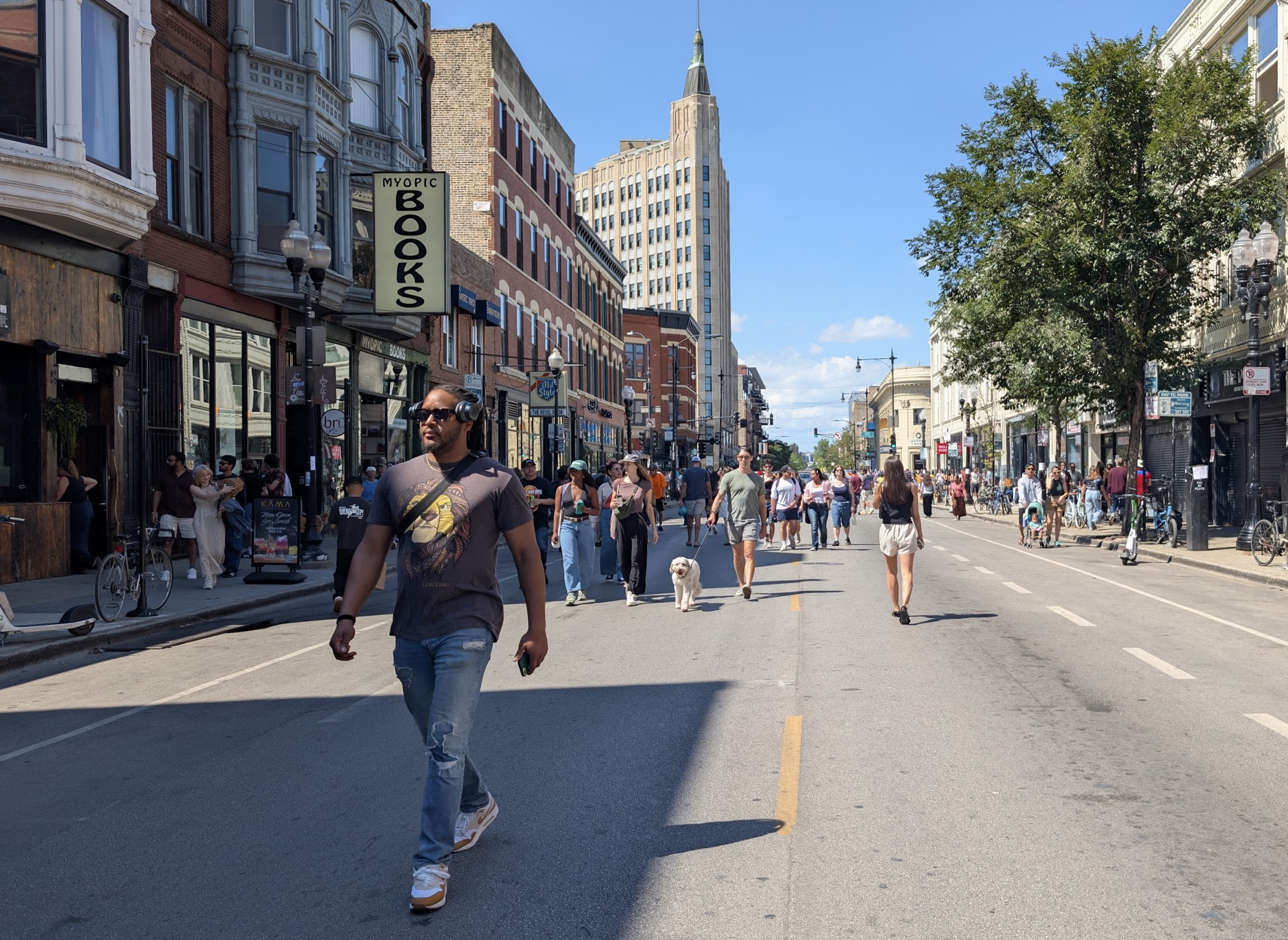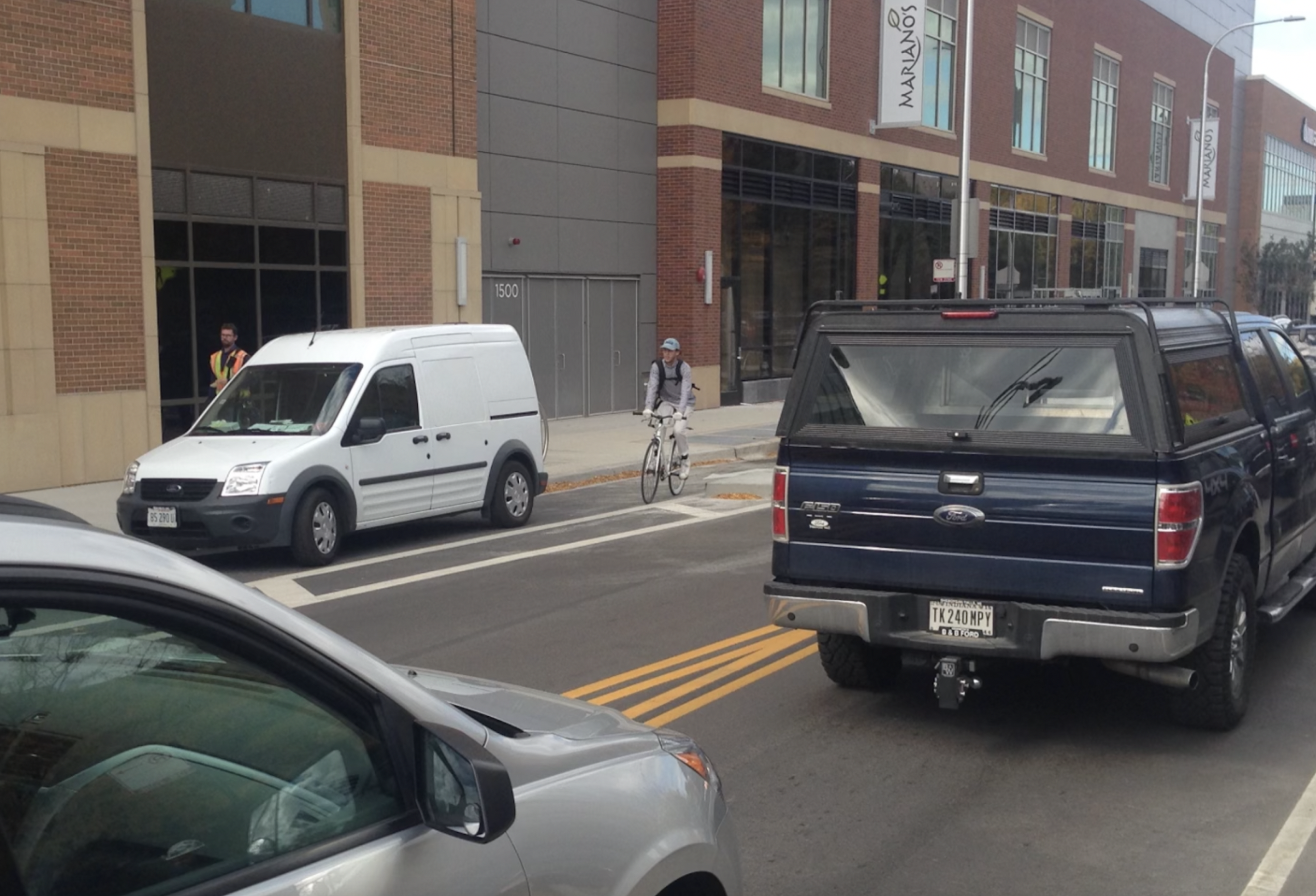Local residents described Main Street in O'Fallon, Missouri, as "ugly," "outdated," and "old" in a series of meetings earlier this year.

Officials responded with a plan to redesign the road to make it safer and more inviting for pedestrians: a road diet. Scores of American cities have used this design treatment to calm traffic and make commercial districts more walkable, preventing injuries and deaths in the process.
Who could have a problem with that? Well, St. Charles County. The county government has decided to intervene, usurping the authority of the local government. Brent Hugh at the Missouri Bicycle and Pedestrian Federation explains:
This is, frankly, one of the most unbelievable scenarios we have seen in many years of advocacy for better communities for walking and bicycling. The city, which is close to the situation and knows its own needs, had gone through a detailed planning process for improving its main street. The process included public meetings, interviews, and many other forms of public outreach to find out what O'Fallon citizens and businesses really want and need from the project.
After all of that, the County -- without doing any similar research or public outreach -- stepped in and, attempting to exercise bald political power, issued a threat: If the city goes through with its citizen-supported plan, the County will withhold $2.5 million in funding from the city.
This is not the first time St. Charles County has used a similar threat to derail a city's work to make its city center more walkable and bikeable. St. Charles County recently pressured the City of St. Charles to remove planned bike lanes from a project.
It is unfortunate that St. Charles County is taking these steps backward at this important time. Because cities around Missouri, around the United States, and around the world are taking dramatic steps to improve their city centers for bicycling and walking.
And this is not just an issue about who is going to prevail in a political tug of war. The reason advocates and community members are so passionate about implementing road diets in the streets that run through the hearts of their communities is that road diets save lives.
Hugh is urging people to share the news widely and contact local leaders with objections.
Elsewhere on the Network today: The Wash Cycle explains D.C.'s bike share expansion plans over the next three years. Twin Cities Sidewalks says despite the media's chorus a traffic death last week in St. Paul could have been prevented. And Seattle Transit Blog explains that the city has money to expand transit, but is having trouble filling vacant positions.




